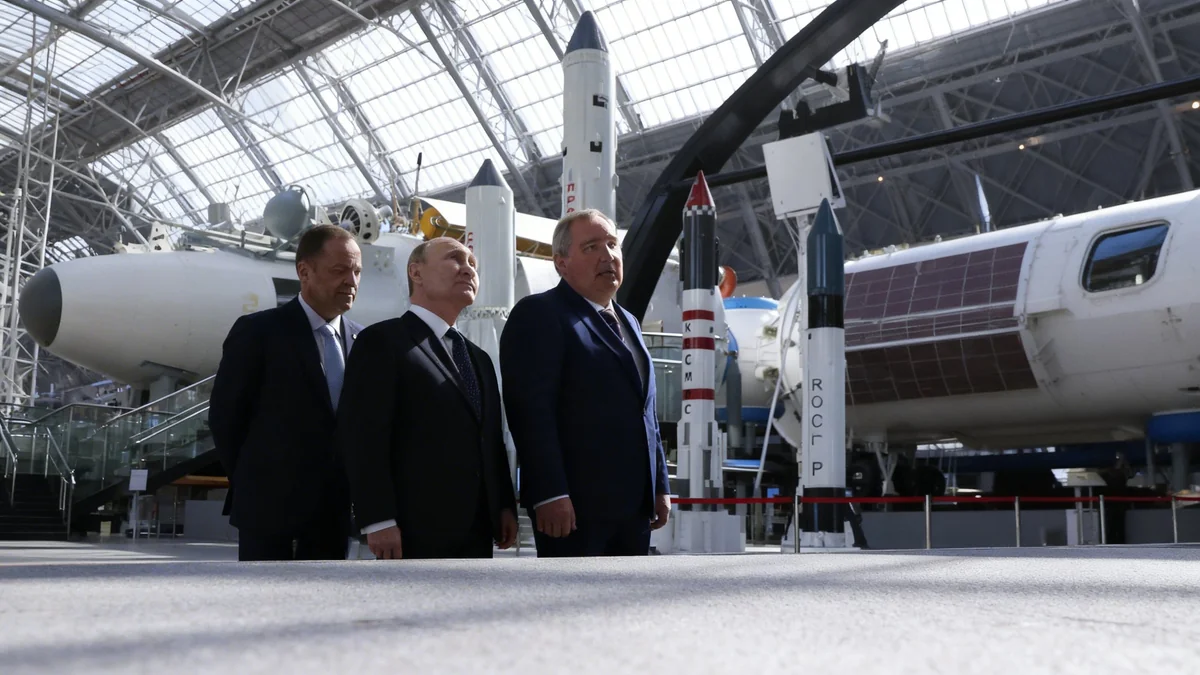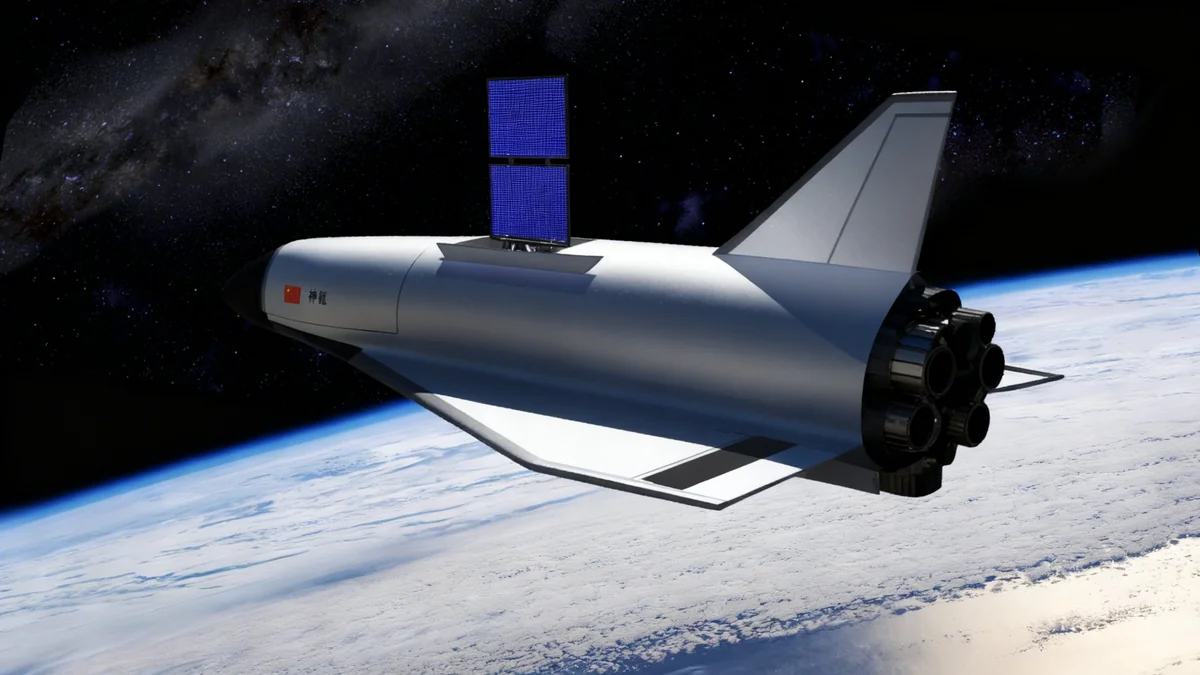Saudi Arabia is advancing its space ambitions through a major partnership between the Saudi-based company SpaceBelt KSA and the American launch provider iRocket. The agreement, valued at $640 million over five years, will facilitate up to thirty orbital launches to establish a secure satellite communications network for the Kingdom and the wider Gulf region.
This initiative is a core component of Saudi Arabia's Vision 2030, which aims to enhance technological independence and diversify the nation's economy. The planned low-Earth orbit (LEO) constellation will provide encrypted data and internet services, marking a significant step towards sovereign space infrastructure.
Key Takeaways
- SpaceBelt KSA has signed a $640 million, five-year contract with US-based iRocket for up to 30 satellite launches.
- The project will create a secure low-Earth orbit (LEO) satellite network for Saudi Arabia and the Gulf Cooperation Council (GCC).
- The network will focus on encrypted communications for government, defense, and commercial clients, rather than mass-market broadband.
- This partnership aims to close strategic gaps in Saudi Arabia's space capabilities, including the lack of a sovereign LEO network and domestic launch access.
- The deal aligns with Saudi Arabia's Vision 2030 goals for technological self-reliance and economic diversification.
A Strategic Partnership for Sovereign Space Capabilities
Saudi Arabia's space sector is set for significant expansion following a landmark agreement between SpaceBelt KSA, a Saudi platform for space logistics, and iRocket, an innovative US launch company. The contract, announced for a five-year term beginning in August 2025, commits $640 million to support as many as thirty separate orbital missions.
The primary objective of these launches is the deployment of a low-Earth orbit (LEO) satellite constellation. This network is designed to provide secure, encrypted internet access and data transmission services across the Kingdom of Saudi Arabia and neighboring countries within the Gulf Cooperation Council (GCC).
The collaboration represents more than a simple commercial transaction. It is a strategic move to build an independent space infrastructure, a key objective of the nation's Vision 2030 plan. As SpaceBelt KSA states, creating this capability is a "strategic necessity for a resilient future economy," moving beyond theoretical concepts to tangible national assets.
Aligning with Vision 2030
Saudi Arabia's Vision 2030 is a comprehensive national strategy aimed at reducing the country's dependence on oil, diversifying its economy, and developing public service sectors such as health, education, infrastructure, recreation, and tourism. The development of a sovereign space industry directly supports these goals by fostering high-tech jobs, enabling technological independence, and enhancing national security.
Details of the Planned Satellite Network
The core of the SpaceBelt KSA and iRocket partnership is the creation of a specialized LEO satellite communications network. Unlike large-scale consumer constellations such as SpaceX's Starlink, which operates thousands of satellites for global broadband, the SpaceBelt network will be more focused.
It is planned to consist of several dozen satellites, optimized for confidentiality and operational resilience. The network is not intended for the mass market but will serve strategic government, defense, and enterprise clients who require highly secure communication channels.
Encrypted Communications and Data Security
A primary feature of the SpaceBelt network is its focus on sovereign, digitally autonomous infrastructure. All data transmitted through the system will be protected by end-to-end encryption and remain under Saudi control. This is a critical requirement for government and military users who need to prevent interception of sensitive communications.
To enhance data integrity, SpaceBelt KSA is reportedly collaborating with partners like SpaceChain to integrate blockchain technology. This would use small satellites, known as CubeSats, as secure in-orbit nodes to validate and encrypt transactions, creating a tamper-resistant "space cloud" for sensitive applications.
What is a LEO Constellation?
A Low-Earth Orbit (LEO) satellite constellation is a group of artificial satellites placed in orbits relatively close to the Earth's surface (typically below 2,000 km). Their proximity allows for lower latency (signal delay) compared to geostationary satellites, making them ideal for real-time communications and internet services.
Dual-Use Applications for Defense and Industry
The planned satellite constellation is designed with a dual-use purpose, catering to both national security and commercial needs. This versatile approach enhances its strategic value and ensures its commercial sustainability.
Key applications include:
- National Security: Providing secure communication links for military operations, transmitting intelligence data, and serving as a resilient backup communication system during emergencies.
- Commercial Enterprise: Offering ultra-secure channels for critical industries such as banking, energy, and technology. This could include protecting financial transfers or ensuring reliable connectivity for remote infrastructure like oil and gas facilities.
The Role of iRocket and Technology Transfer
Under the terms of the agreement, iRocket is responsible for critical aspects of the launch campaign. The company will manage launch vehicle integration, detailed mission planning, and propulsion support for the thirty planned SpaceBelt KSA missions.
iRocket is developing its "Shockwave" reusable rocket, which is designed for rapid turnaround. Powered by methane-fueled engines, the vehicle aims for a re-launch capability within 24 hours. While still in development, this technology promises to provide SpaceBelt KSA with a responsive and dedicated launch service, reducing reliance on crowded international launch schedules.
"This isn’t science fiction; it’s strategic necessity for a resilient future economy." - Statement from SpaceBelt KSA's website, highlighting the project's importance.
The partnership also includes provisions for technology transfer and local industrial development. Both companies have expressed intentions to explore regional manufacturing of space hardware and to build out related technical capabilities within Saudi Arabia. This could involve training Saudi engineers and technicians, establishing facilities for satellite component assembly, and developing local ground support infrastructure, all of which directly contribute to Vision 2030's industrial goals.
Addressing Gaps in Saudi Space Capabilities
Prior to this deal, Saudi Arabia had already achieved notable successes in space, including launching geostationary communications satellites and participating in human spaceflight missions. However, certain strategic gaps remained.
The Kingdom lacked its own LEO communications constellation dedicated to sovereign, secure data transmission. It also had no domestic launch capability, making it dependent on foreign providers and their schedules. The SpaceBelt KSA-iRocket agreement is specifically designed to address these deficiencies.
Regional Space Ambitions
The Middle East has become a hub of space activity. The United Arab Emirates successfully sent its Hope Probe into Mars' orbit in 2021 and is investing in other ambitious projects. Other nations, including Oman, Qatar, and Bahrain, are also actively developing their own satellite and space technology initiatives, creating a competitive and collaborative regional environment.
By establishing a locally controlled, high-security LEO network, Saudi Arabia can complement its existing satellite assets. This new layer of infrastructure will provide a level of data security and control that cannot be achieved through foreign-provided services.
Furthermore, the partnership provides a pathway to more responsive launch access. Securing a dedicated launch provider like iRocket could allow Saudi planners to schedule missions with greater frequency and on shorter notice, a capability previously limited to major space powers.
Future Outlook and Geopolitical Implications
If the SpaceBelt KSA–iRocket partnership proves successful, it could serve as a catalyst for further international collaboration in the Saudi space sector. The Kingdom's demonstrated commitment to investing in strategic technology may attract partners from Europe and Asia, leading to new joint ventures and projects.
From a geopolitical perspective, owning and operating a secure satellite network significantly enhances a nation's strategic autonomy. It reduces reliance on foreign infrastructure for critical communications, strengthening both defense and economic security.
In the long term, this project could position Saudi Arabia to take on a larger role in global space activities. This might include contributing satellite services for international disaster response, participating in federated satellite constellations, or pursuing scientific missions beyond Earth's orbit. The technical expertise and institutional experience gained from this deal will be foundational for any such future ambitions.





